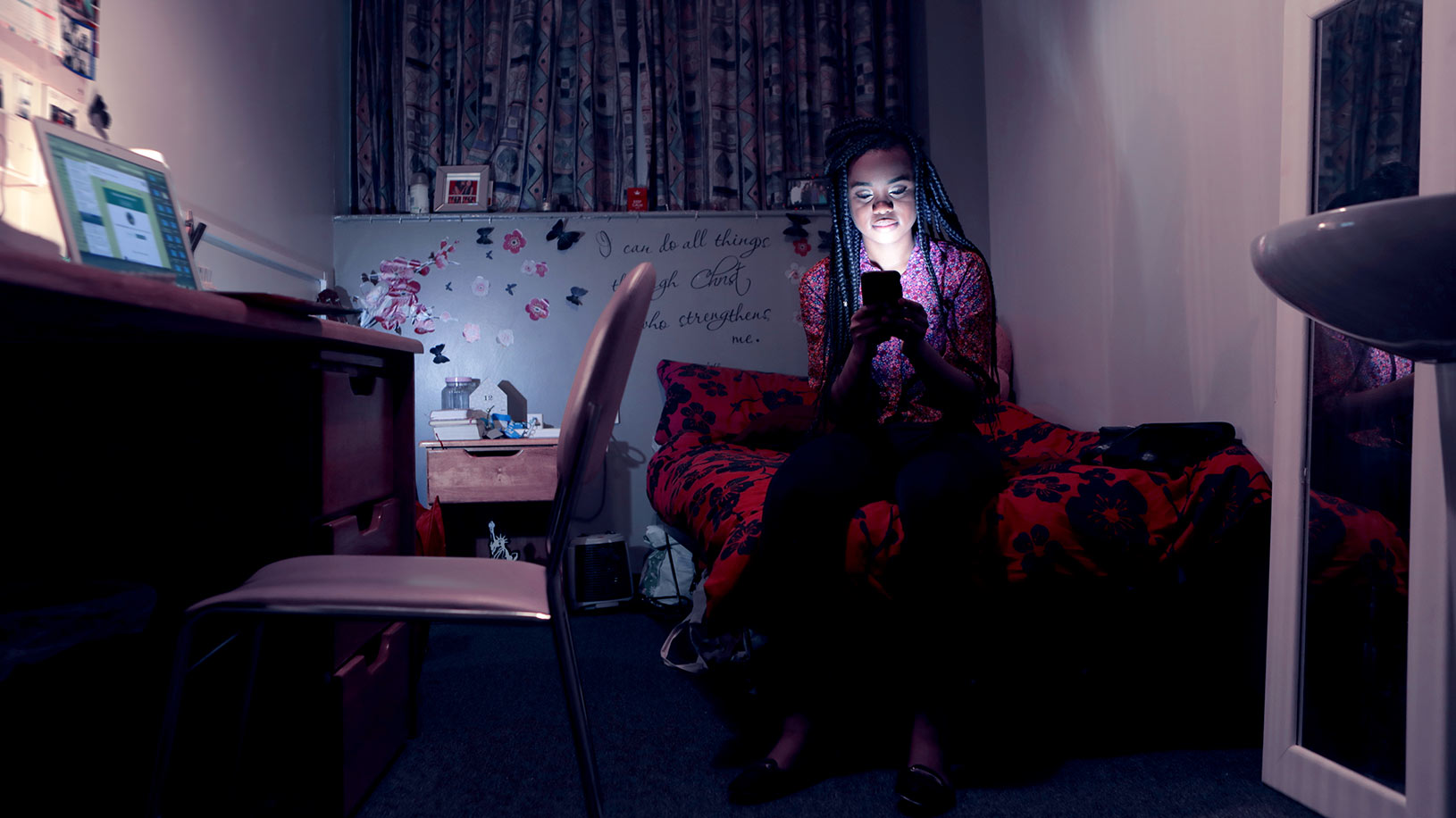
Related Resources
Antisemitism has soared in the wake of the Hamas assault on Israel on October 7th with an intensity that has shocked many. Jewish students and campus organizations, such as Hillel, report that anti-Jewish and anti-Israel sentiments are often being spread via campus messaging apps like Yik Yak and Sidechat, where hate can easily be masked behind a cloak of anonymity. Jewish students have reported death threats, verbal and physical assaults, and levels of intimidation that have spread fear of attending classes or in some instances even venturing outside of their dorm rooms.
Yik Yak was launched in 2013. However, hate on the platform, including hate speech, harassment and violent threats, eventually spun out of control and Yik Yak ceased activity in 2017. In 2021, the anonymous messaging app was bought and relaunched by Square, and a year later they launched Sidechat, a competing app. Sidechat experienced explosive growth across college campuses as it hired ambassadors on campus, and in 2023 Sidechat bought Yik Yak. While technically still remaining separate apps, the two platforms are merging as Yik Yak users are being moved over to Sidechat.
As anonymous posting platforms, Yik Yak and Sidechat allow users to post without providing any sort of identifying information. ADL has written about the complex nature of anonymity online, a topic constantly debated for its ability to create space for robust online communication and its role in fomenting hate and toxicity in these spaces.
There are real benefits to allowing users to post anonymously and for the principle of keeping space for online anonymity. For proponents, online anonymity allows someone to communicate a message without the threat of being targeted or harassed in response. Further, doing away with online anonymity will not solve the problem of hate, harassment, and disinformation. Research has shown that forcing people to post online under their “real” names does not meaningfully impact toxicity and harassment. Still, there can be real consequences and a potential for harm when bad actors feel emboldened under a cloak of anonymity to target others or spew hate.
Notably, there are some factors that distinguish Sidechat and Yik Yak from other anonymous platforms. For example, there are various product features to ensure only college students use the apps. Sign-up on Sidechat requires a .edu email address, which is normally only given to students or those who work in an educational capacity. Users are only allowed to post on their university’s page and cannot cross post to other universities.
Based on what our constituents have reported to ADL and other examples we have seen of hate on the platforms, it appears that Yik Yak and Sidechat are not enforcing their own rules sufficiently robustly. Their community guidelines outline a variety of abuses that are not allowed on the platform, from bullying and harassment to racism and bigotry, including religious discrimination. While this is necessary as a matter of policy, it is not sufficient; there are still gaps. Notably, there are no examples of the actions that are banned. For example, content related to rumors, or sharing “harmful gossip” is banned, but there are no details or explanation of what constitutes a ‘rumor’. Users can hide posts from other users, or block them, and they also have the option to report content on a variety of grounds (spam; identifies a student; it’s mean; breaks the law). But there are no details about what will happen if your content or account is actioned (save for details buried within the Terms of Service). Finally, since users must have a ‘.edu’ email address to have an account, we cannot examine how well the actual reporting systems work. We recommend platforms like Yik Yak and Sidechat strengthen their Community Guidelines, and advocate for transparency and user friendly and effective reporting.
Meanwhile, Jewish students advocating for themselves have been documenting antisemitic and other harmful Sidechat and Yik Yak content by writing op-eds and sharing screenshots of particularly egregious content on social media. A small cross-section of these intakes and self-reported incidents from students can be found below. ADL continues to track antisemitic trends on campus and on apps like Sidechat. We strongly encourage those who see or experience antisemitism on these apps to report such hateful incidents via in-app channels. Students can also report incidents to ADL.

Undated student screenshot from Sidechat

The Tufts Daily (https://www.tuftsdaily.com/article/2023/11/tufts-has-acquiesced-in-the-face-of-anonymous-hate-speech-655ad149b7829)

Time of Israel (https://www.timesofisrael.com/amid-israel-hamas-war-students-say-antisemitism-is-new-normal-at-columbia-university/)


WYPR (https://www.wypr.org/wypr-news/2023-12-05/johns-hopkins-students-urge-university-leaders-to-better-protect-muslim-jewish-peers)












